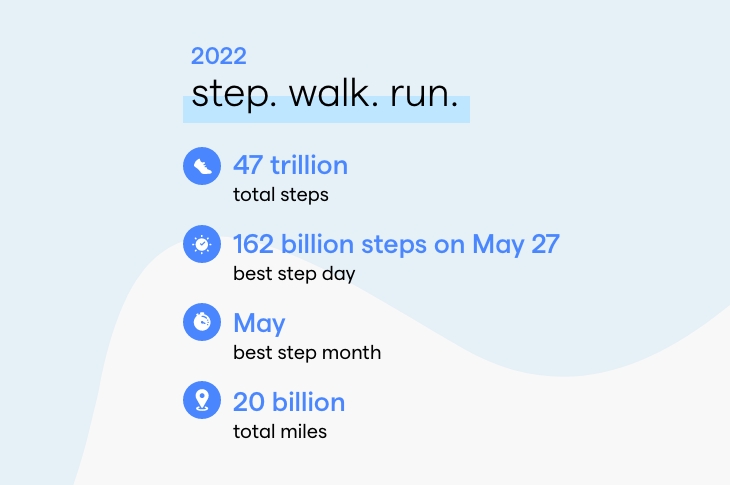Latest
Combat the Cost of Groceries with a Plan
Food costs have skyrocketed in the past year, but that doesn’t mean you have to forego healthy eating. With just a little forethought, there are ways to counter this increase. Here are some tips for maintaining a nutritious diet without breaking the bank. Think ahead Take inventory. Before heading to …
New Year, Strong You: 3 Recipes for Mental Strength
RECIPE BY LEANDRA ROUSE | PHOTOGRAPHY BY SAM EMMONS As you set about keeping your goals for the new year, consider how you fuel your brain for the day. Nutrition research shows people who consume breakfast do better in mental performance tests, have improved focus and even say they feel …
Fitbit’s Year in Review: Which Countries Took Their Health and Fitness to the Next Level in 2022?
As we head into a new year, it’s always important to reflect on the one gone by. 2022 was filled with highs and lows, wins and losses, learnings and celebrations. Above all else, it taught us that when we come together as a community, we can achieve great things such …
What is the Sober Curious Movement—and Why Is It So Popular?
Many people think that, when it comes to alcohol use, it’s all-or-nothing; you either pursue full sobriety or you drink whatever and whenever you want. But it doesn’t have to be all-or-nothing. There’s a movement aimed at helping people want to better understand their relationship to alcohol and make healthier …
Try a Mood Board for Your Fitness and Wellness Resolutions This Year
The New Year is one of the best times of the year to set fitness and wellness resolutions. And one of the best ways to ensure you keep those fitness and wellness resolutions all year long? A mood board. Mood boards can be a great source of inspiration for making …
Should You Try a Ballet-Style Workout?
Barre classes may do great things for your glutes, thighs, and core, but if you really want to be strong like a ballerina, consider a ballet workout. This total body exercise doesn’t just strengthen and lengthen muscles; it boasts some decided fringe benefits, like better posture, balance, and confidence, says …







